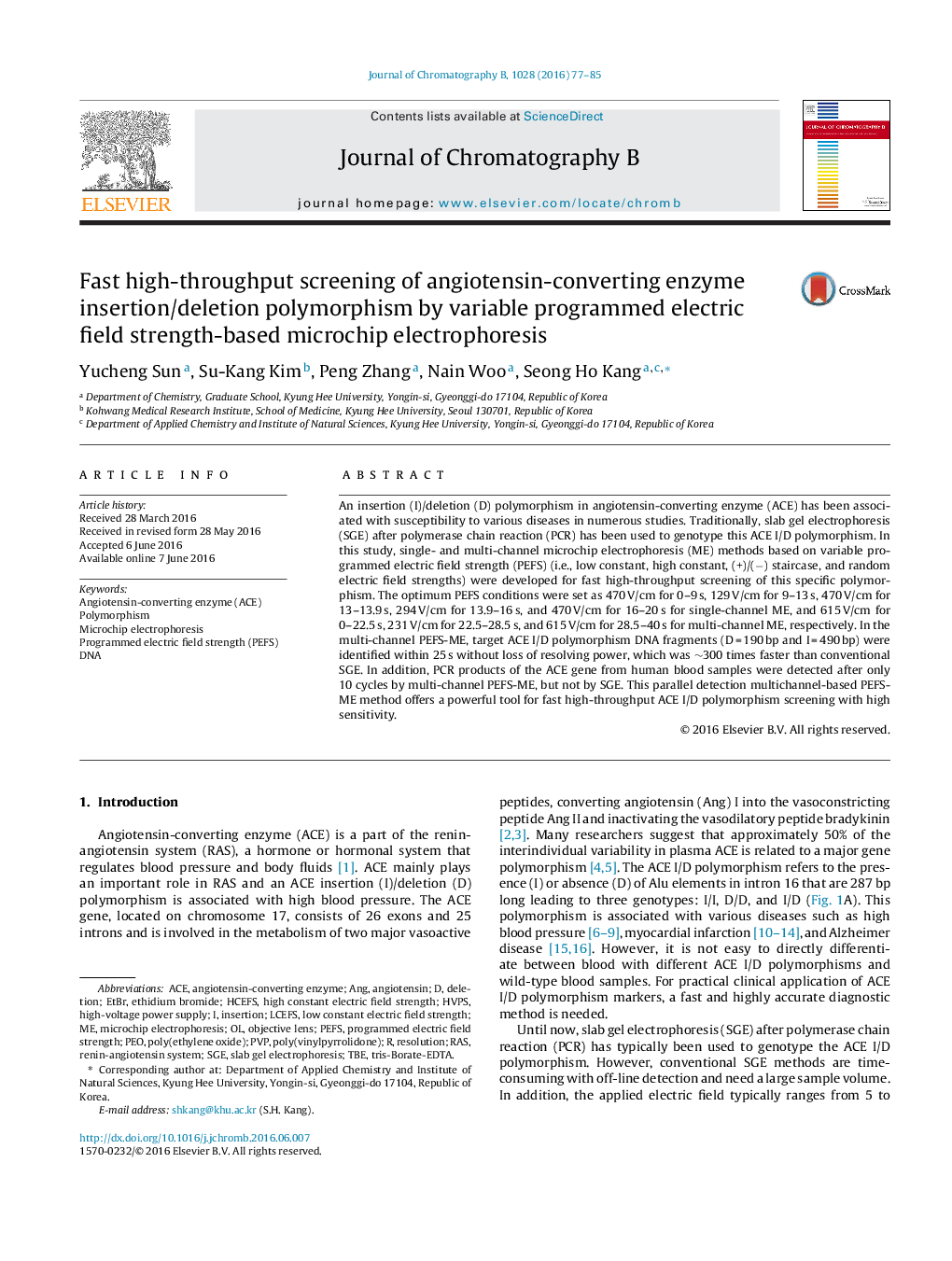| Article ID | Journal | Published Year | Pages | File Type |
|---|---|---|---|---|
| 7615939 | Journal of Chromatography B | 2016 | 9 Pages |
Abstract
An insertion (I)/deletion (D) polymorphism in angiotensin-converting enzyme (ACE) has been associated with susceptibility to various diseases in numerous studies. Traditionally, slab gel electrophoresis (SGE) after polymerase chain reaction (PCR) has been used to genotype this ACE I/D polymorphism. In this study, single- and multi-channel microchip electrophoresis (ME) methods based on variable programmed electric field strength (PEFS) (i.e., low constant, high constant, (+)/(â) staircase, and random electric field strengths) were developed for fast high-throughput screening of this specific polymorphism. The optimum PEFS conditions were set as 470Â V/cm for 0-9Â s, 129Â V/cm for 9-13Â s, 470Â V/cm for 13-13.9Â s, 294Â V/cm for 13.9-16Â s, and 470Â V/cm for 16-20Â s for single-channel ME, and 615Â V/cm for 0-22.5Â s, 231Â V/cm for 22.5-28.5Â s, and 615Â V/cm for 28.5-40Â s for multi-channel ME, respectively. In the multi-channel PEFS-ME, target ACE I/D polymorphism DNA fragments (DÂ =Â 190Â bp and IÂ =Â 490Â bp) were identified within 25Â s without loss of resolving power, which was â¼300 times faster than conventional SGE. In addition, PCR products of the ACE gene from human blood samples were detected after only 10 cycles by multi-channel PEFS-ME, but not by SGE. This parallel detection multichannel-based PEFS-ME method offers a powerful tool for fast high-throughput ACE I/D polymorphism screening with high sensitivity.
Keywords
Related Topics
Physical Sciences and Engineering
Chemistry
Analytical Chemistry
Authors
Yucheng Sun, Su-Kang Kim, Peng Zhang, Nain Woo, Seong Ho Kang,
